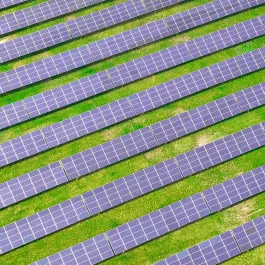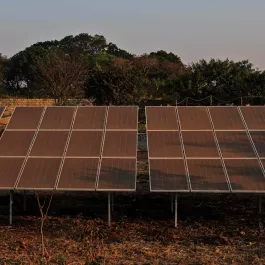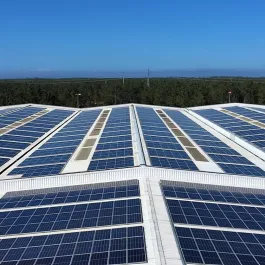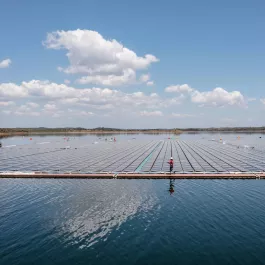
EDP announces a more ambitious 2030 decarbonization goal in line with climate science

EDP's new goal of reducing CO2 emissions by 90% by 2030 (compared to 2015 levels) has been recognized by the Science Based Target initiative as being in line with climate science requirements. The strategy is another important contribution to limit global warming to 1.5ºC.
EDP has ramped up its environmental goals for the next ten years: the company has announced it will reduce specific direct CO2 emissions by 90% until 2030, compared to 2015 levels. This new target represents a significant advance in EDP's decarbonization goals, supported by the decision to anticipate the closure of coal plants across the Iberian Peninsula and by the continuous growth of renewable energy-based production. Over the same period EDP will also reduce indirect CO2 emissions by 40%.
The Science Based Target initiative (SBTi) - an organization that assesses and approves corporate initiatives aimed at a low-carbon economy and at tackling climate change - has recognized that EDP's new sustainability and decarbonization strategy is in line with climate science guidelines for limiting global warming to 1.5ºC.
The company had taken on this commitment in 2019, when it joined the UN 'Business Ambition for 1.5ºC' campaign. In this context, EDP has committed to setting a CO2 emission reduction target consistent with what climate science has determined to be necessary in order to limit global warming to the Paris Agreement's most demanding levels. The charter that specified this commitment was signed by more than 300 major global companies, 200 of which have already been recognized by SBTi as having this level of ambition; of these, only five are from the electricity sector, including EDP.
SBTi is a non-governmental organization (NGO) born from the collaboration between the Carbon Disclosure Project (CDP), the UN Global Compact (UNGC), the World Resources Institute (WRI), and the World Wide Fund for Nature (WWF). Its main objective is to encourage companies to set climate science-based targets, thereby accelerating the transition to a low-carbon economy. This organization is internationally recognized for assessing and approving climate science-based reduction targets.
Also this year, together with other companies from the energy sector, EDP has helped prepare a set of guidelines - titled 'Setting Science-Based Targets: A Guide for Electric Utilities' and published by the World Business Council for Sustainable Development (WBCSD) - to help electricity companies set reduction targets in line with scientifically validated data. With these commitments, EDP consolidates its determination to contribute to the decarbonization of the electricity sector and the electrification of the remaining industries, and strengthens the ambition to lead this process by achieving carbon neutrality by 2050.








